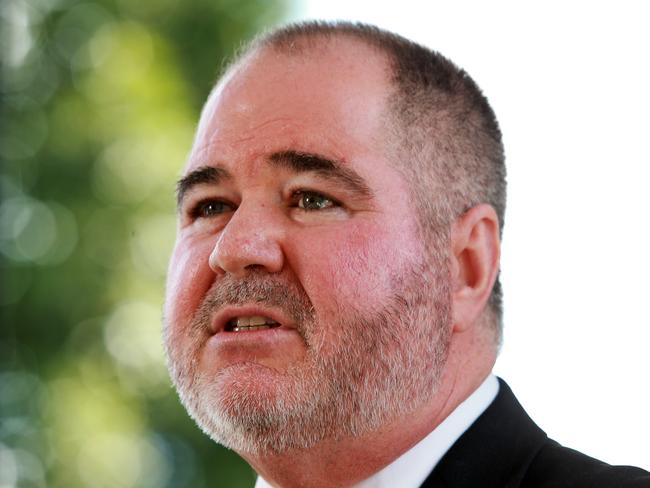New Bond Uni study finds stress drives teachers to drink
Unruly students, pushy parents and an “obsession with data” are turning teachers into alcoholics at three times the national average, a shocking new Queensland study has found.
Health
Don't miss out on the headlines from Health. Followed categories will be added to My News.
SCHOOL stress is driving teachers to drink, with a new study revealing alcoholism and anxiety rates three times higher than the community norm.
Bond University research reveals that 17 per cent of teachers have “probable alcohol dependence’’ and 18.4 per cent are depressed.
One in five teachers suffers severe anxiety — and one in four is afflicted with psychosomatic problems like headaches or nausea.
Hardworking teachers don’t deserve to be abused by parents
Community backs calls for respect for school teachers and staff
Study author Associate Professor Peta Stapleton, of Bond University’s school of psychology, said teachers’ mental health was three times worse than the rest of the community.
She said many of the teachers surveyed for the study planned to quit within five years.
Prof Stapleton said teachers’ mental health problems could affect students.
“If you’ve got a teacher who is cranky or withdrawing from drinking the night before, that’s going to affect all their teaching ability as well as student learning,’’ she told The Courier-Mail.
“The study shows teachers are using substances to cope and to relax and unwind, and that’s a worry.
“Teachers (in the study) were meeting depression and anxiety symptoms triple the national average.’’

Prof Stapleton said heavy workloads, work stress and financial problems were the biggest triggers for teacher depression and anxiety.
“There were difficulties of (student) behavioural issues and parents interfering, but workload was the biggest thing,’’ she said.
Queensland Teachers’ Union president Kevin Bates yesterday said many teachers were working 45 to 55 hours a week, marking homework, assignments and extra-curricular activities.
Unruly classrooms, pushy parents and an Education Department “obsession with data’’ and testing were adding to the stress.
“It goes from wilful disobedience, with students refusing to work, to annoying other students, right through to assaulting other students,’’ Mr Bates said.
“The incidence of students verbally and physically assaulting teachers and other staffers is on the rise.’’
Mr Bates said the community had less respect for teachers, “and that’s manifested in complaints directed at schools in ways that put the students’ view of the world first’’.
“Parents will defend their children at all costs, despite evidence they’re in the wrong,’’ he said.
“Parents won’t accept their children have done the wrong thing.’’
A Queensland teacher was injured trying to break up a schoolyard fight in Gympie last month, and a parent was arrested after allegedly stabling a teacher with scissors at a primary school in Byron Bay in April.
The Bond University study, involving 161 Australian teachers in primary and high schools, recommends that schools improve staff wellbeing.
“The findings are particularly concerning as school teachers are required to foster the emotional wellbeing of students,’’ the report says.
“However, if their mental health is affected, their capacity to address and promote wellbeing in students may be corroded.’’



